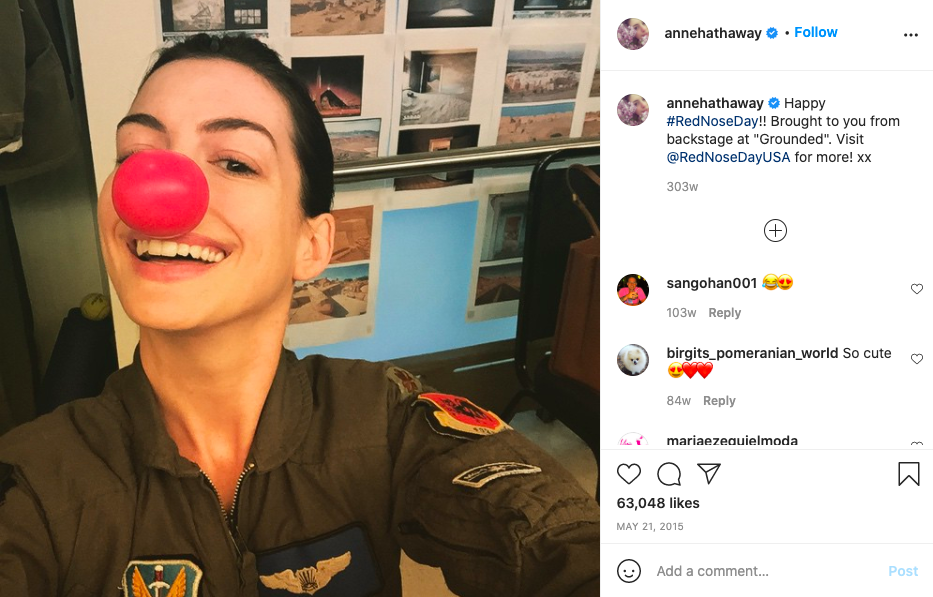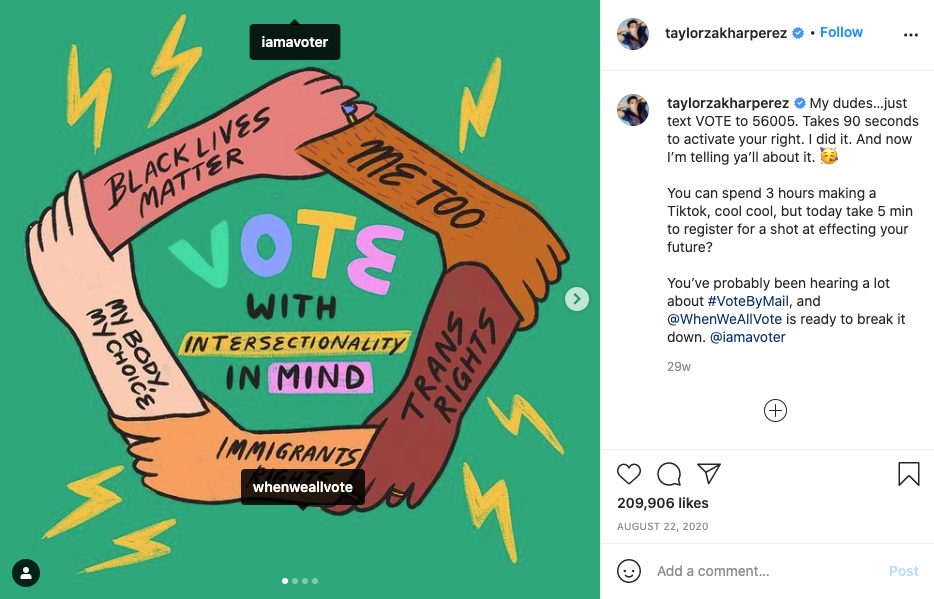We all know that utilizing influencers can be a great tool for brands when it comes to generating awareness around a product or service. But can (and should) those same influencers that help promote shoes or diet trends use their platforms to help promote advocacy?
The answer to this question is a resounding….maybe. Let’s discuss the dos and don’ts of asking influencers to help your cause.
When is it appropriate?
There are a lot of factors to consider when determining if your organization should use influencers to further your advocacy message, but a good place to start is by asking yourself three questions:
Does the influencer’s brand align with the efforts of your organization?
Being authentic is always a key component of messaging no matter what you’re promoting, but with advocacy it has never been more important. Before reaching out to an influencer, you must first ensure that their beliefs and brand align with your organization. Otherwise, you could end up in a sticky situation where it appears that you endorse behaviors or ideas that you do not. (Plus, you could end up reaching an audience that’s totally unaligned with your message.)
Will the content you’d have them publish mesh well with their other regularly scheduled programming?
If you are going to use an influencer, review their accounts thoroughly and determine if the creative you will be asking them to publish aligns with typical content they publish. If you’d be asking them to share a message about food insecurity, do you want it to appear between photos of gourmet meals at high-end restaurants? This extra level of consideration can save you a lot of headaches down the road.
Would they consider lending services at potentially reduced rates in an effort to support a good cause?
It’s simply a reality that many amazing nonprofits are working with not-so-amazing budgets. Is your cause one that the influencer already cares about or has posted about unprompted in the past? Maybe they would view partnering with your organization as a type of volunteering and would be willing to be flexible with rates.
With all this in mind, let’s take a look at one of the most classic examples of when using high-profile influencers for an advocacy campaign worked out well.
Over the years, you’ve likely been exposed to a campaign featuring celebrities such as Ed Sheeran, Anna Kendrick, Anne Hathaway, and One Direction posting pictures of themselves wearing red clown noses.
These posts are all a part of a campaign known as Red Nose Day. Red Nose Day is a fundraising telethon-slash-awareness campaign supported by NBC, Walgreens, and The Bill and Melinda Gates Foundation with a mission “to end child poverty by funding programs that keep children safe, healthy, and educated.”
Each year during the month of May, NBC hosts a special night of Red Nose Day programming that includes comedy sketches, musical performances, and special celebrity guests that encourage donations to the foundation.
Since the foundation’s debut in 2015, it has raised more than $240 million and has positively impacted more than 25 million children in America and around the world. Along with support from their partners, a large part of the event’s success comes from the influencers that create awareness of this foundation through their personal social posts.
Of course, you don’t need a mega celebrity influencer in order to spread your message and increase your reach. Bloggers, micro-influencers, and even higher-profile supporters of your organization can be just as impactful.
When is it not appropriate?
Using influencers in your advocacy campaign is not appropriate—you guessed it—when your answers to the three questions above are no. Let’s imagine a few hypothetical scenarios that would present a good reason not to use an influencer.
Does the influencer’s brand align with the efforts of your organization?
Let’s say you are seeking influencers to share content about your organization’s efforts to support those on the frontlines of the COVID-19 pandemic, but the influencer you’re eyeing recently went on a luxury vacation that went against CDC recommendations. In this case, you’d want to steer away from working with that individual, as your brands and values aren’t in alignment.
Will the content you’d have them publish mesh well with their other regularly scheduled programming?
Say you’re considering partnering with a highly followed influencer whose typical content consists of illustrations and original artwork, and you want them to post a minute-long video about your organization. Because this material would be so different from their usual content, it’s less likely that their audience will show tons of engagement and make your efforts worthwhile. Instead, consider asking the influencer to create a piece of their original art that speaks to your organization and cause.
Would they consider lending services at potentially reduced rates in an effort to support a good cause?
Naturally, this scenario will vary depending on the people, organizations, and budgets involved. But in general, the more you approach influencers who have previously shown support for your organization on their own, the more likely it is that they will be willing to be flexible to find a way to work together.
The next time you’re considering working with an influencer for an advocacy campaign, don’t forget to ask these questions first. And while you’re at it, get up to speed on the five components of a great advocacy campaign!







